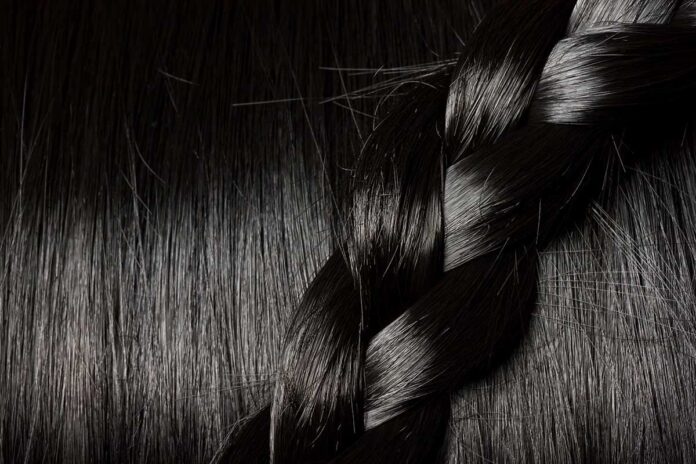
Hair is political.
The rules about hair in the United States are, well, hairy. A lot of it goes back to the Bible, which has lots of wild opinions about hair. In Leviticus, it states that men shouldn’t trim their beards or the hair at their temples. Yes, this is the same Leviticus that people use as “proof” that the Bible forbids and opposes homosexuality. I wonder why you never see people protesting at funerals with signs that read “God Hates Bowl Cuts” or bakers refusing to make cakes for men with clean shaven faces. Weird.
I have my own complicated history with hair. I am a very hairy person. For decades I shaved my legs despite the constant razor burn. I tried waxing my legs more than once. Then, when I got breast cancer and at age 37, I lost all of my hair, every single strand including my eyelashes, thanks to chemo. Before cancer, I had very long hair. Now I was bald as a cue ball. After treatment when my hair started to regrow, I kept my hair short because I couldn’t bear the idea of going through that awkward “growing out” phase to grow it long again. Then the pandemic happened, and I have long hair again. One thing I did stop, however, was shaving my legs. Once I lost every hair I had, not to mention surviving cancer, the idea of spending time and energy removing hair was ridiculous. I wanted every god damn second of my life spent shaving and waxing back.
Popular culture has shaped how we think about hair. Think of all the Renaissance paintings of white women who have no hair on their bodies save the hair on their heads, which is usually flowing and long. Unshaven armpits and legs became ubiquitous with feminists in the 1970s. “Hair metal” ruled the airwaves in the ‘80s with bands like Poison, Mötley Crüe, and Ratt blurring the lines between masculinity and femininity with their long hair, makeup, tight pants and high heels, all while managing to still be sexist and misogynistic.
Racism, sexism, homophobia, and transphobia inform many American attitudes about hair. The long and the short of it is that men have short hair, and women have long hair. Men with long hair are, if not gay, at the very least not masculine. Women with short hair must be lesbians. But, of course, there are plenty of men and women and gender fluid/queer people with hair of all different lengths and styles. And then there’s the discrimination and disparagement of Black hair and Black hairstyles that goes back long before the United States was even a thing. The U.S. Military banned many Black hairstyles until 2014.
But thank goodness we have evolved as a country and no longer police who has hair and on what parts of their bodies and what lengths.
Just kidding. The ACLU is suing the Magnolia, Texas school district for their gender specific rules regarding hair.
“Plaintiffs in the lawsuit include six boys and a non-binary student ages 7-17,” reports the Texas Tribune. “The lawsuit says the students have been threatened with or sent to in-school suspension for weeks at a time; some were placed in a ‘disciplinary alternative education program,’ leading three of them to unenroll from the school district.”
Remember when Tracy Turnblad from John Waters’s “Hairspray” got put into special ed because of her hair? That was intended to not only be funny, but cautionary. Certainly not instructional.
“To be kicked out, pushed out of school entirely simply because of their gender and their hair, is really unconscionable,” Brian Klosterboer, an ACLU of Texas staff attorney, told the Tribune.
Then again, “unconscionable” and “Texas” seem to go hand in hand these days.
The ACLU argues that “the dress code policy’s gender-specific requirements violate equal protection under the 14th Amendment and Title IX, which prohibits discrimination in education institutions on the basis of sex,” according to the Tribune.
That’s a no-no.
But the district claims it’s doing nothing wrong.
“The rules are included in the student handbook each year and are similar to the codes of approximately half of the public school districts in Texas,” the district said, according to the Tribune.
In other words: We put our discriminatory rules in writing, and anyway, everybody else is doing it.
The non-binary student included in the suit was threatened with in-school suspension if they did not cut their hair. The child’s parent told the Tribune that their hair had been long for several years, meaning the school wasn’t enforcing their policy for quite some time.
But something has changed. Could it be that Republican lawmakers are focusing and harshly targeting gender fluid and transgender youth in Texas and across the country? Perhaps. That certainly can’t help.
I wish the ACLU of Texas and these kids luck and thank them for standing up during these hair-raising times.
(Editor’s note: As of November 4th, The Texas Tribune reports that “The Magnolia Independent School District has suspended enforcement of gender-specific provisions in its dress code policy for all students until further notice amid pending litigation that argues the rules discriminate against boys who have long hair.”)
D’Anne Witkowski is a writer living in Michigan with her wife and son. She has been writing about LGBTQ+ politics for nearly two decades. Follow her on Twitter @MamaDWitkowski.
